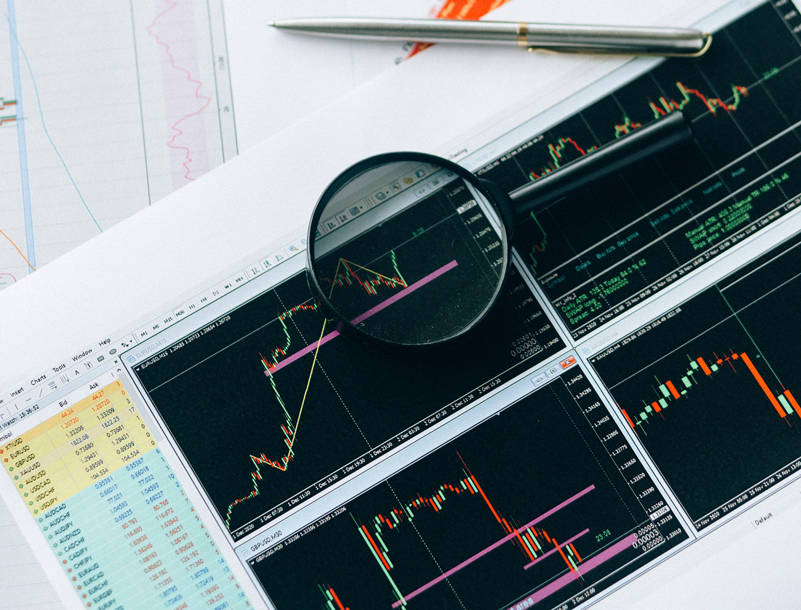By Morf Morford
Tacoma Daily Index
If you read business articles or watch business programs you’ve certainly noticed that the chasm between Wall Street and Main Street is widening.
The formulas of pay scales, tax rates and profit margins, once hit by COVID and related shutdowns is producing results many of us foresaw years, if not decades ago.
Who knows how intentional it was, or what the final results will be, but the impact on many of us, both here in America and around the world will be with us for many years to come.
Financial talking heads use the term “K recovery” and that’s what it is; one arm pointed, (and moving) up, the other pointed, (and moving) down; with essentially no one in the middle.
If you think about it, every recession, maybe even every catastrophe works on the same principle; some survive, even thrive, and some don’t.
Every recession is something like an economic sifting process. Some get sifted out with every shake of the system.
Or perhaps like the children’s game, musical chairs.
With each round, another chair, and another player, is taken out.
Those who withstand the sifting (or the remaining chair) are infinitely better off than those who don’t.
In the previous Great Recession of 2008-09 for example, as the mortgage crisis took hold, so did a credit crisis and a homeless crisis.
Many people, with a foreclosure on their credit report, had a ruined credit history.
Employers began looking at credit reports as part of their employment screening.
Bad credit led to employment problems which led to housing insecurity which led to mental health issues, drug and alcohol use and increased levels of domestic violence, among other rapidly and seemingly irreversible societal ills.
That was the bottom ‘arm” of the “K.”
On the other hand, those of us who kept our homes, maintained our credit and employment and stayed married, and may have scrimped a little, found ourselves on the economic conveyer belt going the other direction.
I figure that my net worth approximately doubled from 2008-2015.
My story, in fact both stories, are probably fairly common and have little, if anything to do with diligence, work ethic or solid financial planning.
Our position, and momentum, on the mighty economic “K” was about 98% luck.
I just happened to find myself on the positive side of interest rates and home equity ownership.
If I had been a renter, or earlier in my mortgage, or in a relationship, employment or health crisis, I would have found myself vulnerable, if not homeless.
In other words, if I would have had the slightest economic or employment glitch in those couple years, the next ten or so years would have been a pure uphill struggle.
And I, like too many Americans, would have been swamped by the tsunami of student and consumer debt that swamped almost an entire generation.
Fast-forward to the 2020s and a new sifting is in full swing; and, as per the script, some are thriving and some are sinking.
Mix in a pandemic and related medical costs and business closures and you have the perfect recipe for, well, we shall see.
We could have economic reform, a more equitable tax system, a fairer pay scale, and more affordable housing, to name a few possibilities. Or we could have outright revolution or civil war.
I was going to say that no one wants revolution or civil war, but based on my social media feed, there seem to be many who do. Pick your political agenda or philosophy and there is some utopian/dystopian police state or anarchist fantasy to match or counter-act it.
The answer, at least for those of us who are not proponents of revolution, chaos or civil war, is simple; ditch the ”K.”
The middle-class life style may not be as exciting as being homeless or living among the rich and famous, but a steady income and a place, and partner to come home to is a lot more appealing and stabilizing.
Our tax systems should be based on what contributes to stability and a solid middle class.
One priority should be the elimination of the homeless – not by “sweeping” the camps or moving them somewhere, but by providing them with the obvious; safe, stable and affordable shelter.
Virtually every homeless person came from a home, a job and a family – and the vast majority want safety and home security.
Homeless camps, on multiple levels, from sanitation, to fire hazard to COVID are a threat to residents, neighbors, social workers and law enforcement.
A study a few years ago showed that each homeless person cost the city ten thousand dollars.
The vast majority of homeless worked just a year or so ago. Most of them worked, paid taxes and maintained homes and families – until the relentless “K” took effect.
The collateral damage of the COVID economy is becoming, after almost a year, all too clear.
Those on solid financial ground are doing better, and those in precarious territory are doing even worse.
Those of us with continuing income are spending less and therefore saving (or investing) more.
Wall Street booms as Main Street withers.
Those businesses we had supported are suffering, but those that survive, even if they just scrape by for a few more months, will thrive once markets revive.
For a more detailed analysis of how this bifurcated economy came into being and what it means for the future look here: https://www.nytimes.com/2021/01/01/upshot/why-markets-boomed-2020.html?
We, as a nation, are more divided than ever before in so many ways. The economic divide opens the way for many, many more sprawling inequities from health to education and more.
The more solid our economic foundation is – for everyone – the longer it will last.
*****
Our 1-14-2021 print edition included a comic entitled “I’m the Market and I Prefer Democracy,” courtesy Megan Sukys. You can see it at her website, http://www.megansukys.com/2021/01/10/im-the-market-and-i-prefer-democracy/






